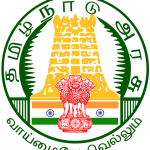- The Supreme Court in a 2:1 majority verdict upheld the validity of the 97th constitutional amendment that deals with issues related to effective management of cooperative societies but struck down a part related to their setting up and functioning.
- The 97th constitutional amendment, which deals with issues related to effective management of cooperative societies in the country, was passed by parliament in December 2011 and had come into effect from February 15, 2012. This change in the constitution, has amended Article 19(1)(c) to give protection to the cooperatives and inserted Article 43 B and Part IX B, relating to them.
- While Article 19(1)(c) guarantees freedom to form association or unions or cooperative societies subject to certain restrictions, Article 43 B says that states shall endeavour to promote voluntary formation, autonomous functioning, democratic control and professional management of cooperative societies.
- Part IXB, introduced into the Constitution through the 97th Amendment of 2012, dictated the terms for running co-operative societies. The provisions in the Amendment, passed by Parliament without getting them ratified by State legislatures as required by the Constitution, went to the extent of determining the number of directors a society should have or their length of tenure and even the necessary expertise required to become a member of the society. The SC however said the Centre has power over Multi State Cooperative Societies which operative across States.
- The apex court’s verdict came on the Centre’s plea challenging the Gujarat high court’s 2013 decision striking down certain provisions of the 97th constitutional amendment while holding that Parliament cannot enact laws with regard to cooperative societies as it is a state subject.
- The top court also examined the question of whether the provision denuded states of their exclusive power to enact laws to deal with the management of cooperative societies. The Centre has contended that the provision does not denude states of their power to enact laws with regard to cooperatives.
- In a majority judgment authored by Justice Nariman, the court held that co-operative societies come under the “exclusive legislative power” of State legislatures. The judgment may be significant in the background of fears voiced by States whether the new Central Ministry of Cooperation would dis-empower them.
- Part IX B, which consists of Articles 243ZH to 243ZT, has “significantly and substantially impacted” State legislatures’ “exclusive legislative power” over its co-operative sector under Entry 32 of the State List to over the co-operative sector. In fact, the court pointed out how Article 243ZI makes it clear that a State may only make law on the incorporation, regulation and winding up of a society subject to the provisions of Part IXB of the 97th Constitutional Amendment.
- “There can be no doubt that our Constitution has been described as quasi-federal in that, so far as legislative powers are concerned, though there is a tilt in favour of the Centre vis-à-vis the States given the federal supremacy principle outlined herein above, yet within their own sphere, the States have exclusive power to legislate on topics reserved exclusively to them,” Justice Nariman wrote in his 89-page majority opinion shared with Justice B.R. Gavai.
- The court also took exception to the fact that the Amendment was passed without ratification from the States. However, the court did not strike down the portions of Part IXB of the Amendment concerning ‘Multi State Cooperative Societies’ due to the lack of ratification.
- The Centre has stated that the amendment was enacted to bring uniformity in the management of cooperative societies and it did not take away the powers of states.
- The top court had said if the Centre wanted to achieve uniformity then the only way available was to take the recourse under Article 252 of the Constitution which deals with the power of Parliament to legislate for two or more states by consent.
- The PIL petitioner contended that as per the provisions of Article 368 of the Constitution, if Parliament intends to amend or delete any of the lists in the seventh schedule, such Amendment shall require to be ratified by the legislature of not less than one-half of the states by resolution to the effect passed by those legislatures before the bill making provisions for such amendment is presented to the President for Assent.
Supreme Court quashes some provisions of 97th Amendment
Newer PostChina-South Asia grouping




